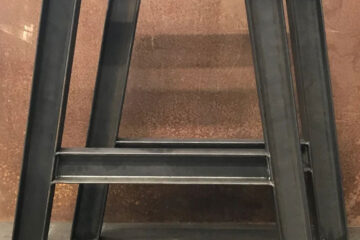The altruistic act of body donation is essential to the progress of medical science. People can greatly aid in the development of life-saving therapies, surgical methods, and a better comprehension of human anatomy and physiology by donating their bodies to scientific research.
Donating a body to science after death is a kind of deed that provides researchers and medical students with priceless insights into the human body, thereby advancing medical procedures and therapies. You can significantly contribute to patient care improvement and the education of upcoming medical professionals by donating your body. Knowing that your work will help future generations can also give you a feeling of purpose and legacy. Even while some people might be uncomfortable with the idea at first, realizing its importance might help change this viewpoint and see it as a noble and kind farewell present.
The Indispensable Role of Cadavers
Human bodies donated for scientific research, or cadavers, are priceless tools for medical research and teaching. They offer a chance that cannot be matched by researchers, surgeons, and medical students to obtain a thorough understanding of human anatomy.
Medical Education: Cadaver dissection is a fundamental component of the medical school curriculum. Students learn about the human body’s complicated anatomy, the interrelationships among its body organs and systems, and the intricacies of its physiology. This practical experience is required to develop clinical expertise and decision-making skills.
Surgical Training: Surgeons use cadaveric dissection to hone their surgical skills. To decrease the danger of problems, they practice and perfect new procedures on cadavers before executing them on humans. Additionally, practicing intricate surgical scenarios on cadavers aids in improving patient outcomes and developing surgeons’ problem-solving abilities.
Anatomical research: Researchers examine the structure of the healthy and diseased human body using cadavers. This study advances our knowledge of diseases, how they develop, and possible therapeutic intervention targets.
Progressing in Medical Research
Beyond instruction and training, body donation plays a vital role in advancing medical research.
Creating New Medical Devices: Scientists and engineers utilize cadavers to evaluate the effectiveness and safety of novel medical devices, including implants, prosthetics, and surgical equipment. This research ensures the effectiveness and safety of these gadgets for human use.
Studying Diseases: Examining cadavers with particular diseases allows researchers to learn more about the disease process, find possible biomarkers, and create novel diagnostic and therapeutic approaches.
Recognizing Injury Patterns: Research using cadavers is essential to comprehending the mechanics underlying injuries sustained in collisions or falls. The creation of safer automobiles, safety gear, and injury prevention techniques are all influenced by this understanding.
Body Donation’s Effect on Patient Care
In the end, patients gain from contributions made through body donation.
Improved patient care results from advances in surgical methods, medical understanding, and gadget development made feasible by cadaveric investigations.
Improved Surgical Results: Surgeons who have refined their techniques on cadavers are more suited to carry out intricate operations with accuracy and less danger to patients.
Faster Recovery Times: Through cadaveric research, new surgical methods and tools have been developed that may help patients recover more quickly from hospital stays.
Better Treatment Options: Cadaveric research facilitates the creation of more focused and efficient treatments by providing a greater understanding of diseases.
Beyond instruction and training, the contribution of human bodies to medical research is essential. In order to ensure the safety and effectiveness of new medical gadgets for use in humans, cadavers are necessary. In order to comprehend disease processes, find relevant biomarkers, and create novel diagnostic and treatment approaches, researchers examine cadavers with certain diseases. Furthermore, cadaver research aids in understanding the patterns of injuries sustained in falls or accidents, which promotes the creation of better automobiles, safety gear, and techniques for preventing injuries. These developments have a major impact on patient care and medical science.
The selfless act of giving one’s body to science is crucial for the advancement of medical research since it results in the creation of cutting-edge surgical methods, life-saving medications, and a deeper comprehension of human anatomy and physiology. You can greatly enhance patient care and instruct upcoming medical experts by donating your corpse to science after death. This admirable deed guarantees that improved medical advancements and information will benefit future generations. Those who are initially uneasy with the thought of body donation may have their attitude changed by accepting it as a last, selfless contribution to humanity.
Conclusion:
The altruistic act of body donation greatly impacts the medical field. Although choosing to donate one’s body is a personal choice, it is important to consider the advantages for society as a whole. By donating their bodies, individuals can significantly improve human health and leave a lasting legacy.
Keep an eye for more news & updates on timesanalysis!



